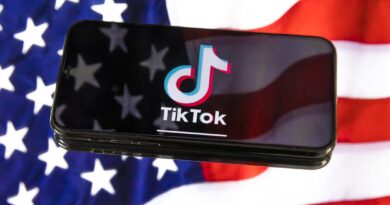US Congress Goes Bang, Bang, On Tik-Tok Sale Or Ban Plan
The United States House of Representatives on Wednesday passed the Protecting Americans from Foreign Adversary Controlled Applications Act – a law aimed at forcing TikTok’s Chinese parent ByteDance to sell the app’s US operations or face the prospect of a ban.
The bill names only TikTok as a “foreign adversary controlled application” and prohibits “Providing services to distribute, maintain, or update” the app – including by offering it for sale in an app store. Even updates to the app aren’t allowed.
If TikTok’s US operations were locally owned and operated, none of the sanctions the bill mentions would be enforceable. And US lawmakers’ fears that TikTok gives Beijing a way to gather intelligence and surveil citizens would be eased.
The bill only exited the House Energy and Commerce Committee last week and passed Congress with unusual speed with 352 votes in favor in the 435-member House. A majority of representatives from both the Republican and Democratic parties voted for the law.
The US Senate will now consider the bill, but some members have already indicated an intent to stall deliberations. Freedom of speech is one argument advanced as a reason to consider the law deeply. The impact of a ban on TikTokkers who make a living on the platform is another – an argument TikTok has fostered and supported.
Whether the law is practical is also being debated. Chinese authorities have said they will prevent TikTok’s owner from offloading the app’s stateside operations. Just how to disentangle the US version of the app from TikTok’s global infrastructure – or how long that might take – is also unknown.
In the past, talk of TikTok bans or restrictions has seen the likes of Microsoft and Oracle express interest in acquiring a chunk of the app and/or hosting its infrastructure.
Big Tech has been silent about its intentions towards TikTok this week. The former CEO of Activision Blizzard, Bobby Kotick, reportedly tried to put together an acquisition, but Chinese media reported that rumor was not accurate.
While debate rages about the bill, few have paused to remember that non-Chinese social networks are all-but-banned in China. That asymmetry means that Chinese authorities (and a few authorized netizens) can easily post to global social networks, but China’s citizens are walled off to the influence of the likes of Facebook.
Banning TikTok in the US would therefore homogenize Sino-American online regulation.
But also deprive US netizens of some really funny videos.
Selling TikTok US would also presumably expose ByteDance’s tech to the app’s new operator. There’s a certain deliciousness to that prospect, given widespread claims that Chinese companies steal US tech. ®
READ MORE HERE

